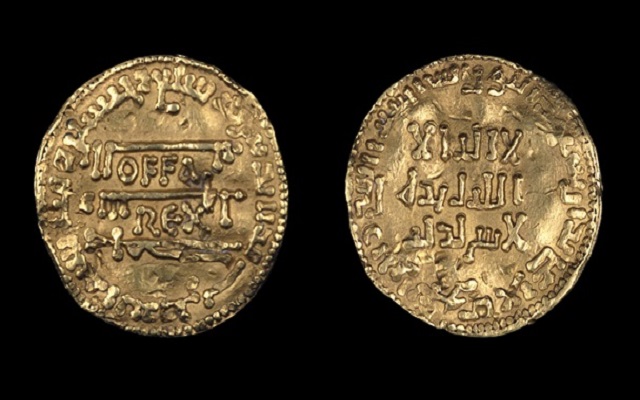- Joined
- Oct 15, 2016
- Messages
- 27,434

Misnaming the Medieval: Rejecting "Anglo-Saxon" Studies
‘Anglo-Saxons’ has long been associated with the early English people, but this label suffers from a long history of misuse. Mary Rambaran-Olm explores the racist legacy of this term.
Anglo-Saxons’ has long been associated with the early English people, but this label suffers from a long history of misuse. The scholarship and field supposedly draw their name from the people that scholars study, although the labels ‘Anglo-Saxonist’ and ‘Anglo-Saxon studies’ are also fraught with inaccuracies. The term ‘Anglo-Saxon’ (rather than the medieval ‘Anglo-Saxorum’ or ‘Anglo-Saxoria’) gained popularity in the eighteenth and nineteenth century as a means of connecting white people to their supposed origins. Historically, the people in early England or ‘Englelond’ did not call themselves ‘Anglo-Saxons’. The term was used sporadically during the early English period, but by and large, the people in early medieval England referred to themselves as ‘Englisc’ or ‘Anglecynn.’
In the centuries following the Norman Conquest of 1066, only scant references of the term ‘Anglo-Saxon’ exist, most notably in reference to royal titles. It was not until the sixteenth century that English antiquarians and scholars began to collect early English manuscripts and compile dictionaries of Old English. This sudden interest in the early English period was not as benign as one might think. In contrast to the Catholic church, Protestant Reformers in England aimed to establish precedent for their sectarian beliefs by reinterpreting early medieval English Christianity to create links between the “primitive English church” and Reformers’ present day. Between the seventeenth and nineteenth centuries, an English nationalizing agenda emerged, centered on an English ‘race’ dependent upon an appropriation and a refashioning of the past. English discourse depicted the ‘Anglo-Saxons’ as reflecting ideals of national liberty.
Rather than accurately portray the early English people as separate tribes (most notably, Angles, Saxons, and Jutes) that migrated to the British Isle, the Anglo-Saxon myth links white people with an imagined heritage based on indigeneity to Britain. This false account of the ‘Anglo-Saxons’ as a nation and ‘race’ has played heavily in political discourse over the past 500 years, often reconstructed to include fictitious narratives to promote political messages of patriotism, imperialism, or racial superiority. As the English language—along with English imperialism—erased indigenous languages and swept across the globe, the Anglo-Saxon myth served as empirical ‘proof’ mandating racial superiority. The study of race fascinated scientists and ethnographers throughout the eighteenth and nineteenth centuries, and equally, early twentieth-century Anglo-Saxonists directly worked with scientific racism in their scholarship, including phrenology. Their anachronistic medievalism ignored a more factual image of ‘others’ in England who had ancestral ties to the land. Despite the long history of invasion and integration in England, English scholars sought to imagine a direct connection to the ‘Anglo-Saxon’ past free from alien associations in order to cleanse English history of the ‘foreign’ elements that, in fact, constituted the English population. Today, far-right identitarian groups seeking to prove their superior ancestry by portraying the ‘Anglo-Saxons’ in ways that both promote English identity and national sociopolitical progress.
During British (and afterwards American) imperialism and colonization, the racial meaning of ‘Anglo-Saxon,’ became the most dominant usage of the term, rather than a historical reference to pre-Conquest England. This white supremacist movement in Euro-America has used the term ‘Anglo-Saxon’ to justify racial violence and colonial genocide for at least 200 years. The racial meaning throughout the English-speaking world deepened and came to be associated crudely with whiteness. ‘Anglo-Saxon’ has become a supremacist dog-whistle reinforcing the idea of the ‘Anglo-Saxon race’ as an indigenous group in England. It suspiciously erases the fact that the Angle and Saxon peoples were ‘migrants’. The term’s association with whiteness has saturated our lexicon to the point that it is absurdly misused in political discourse.






